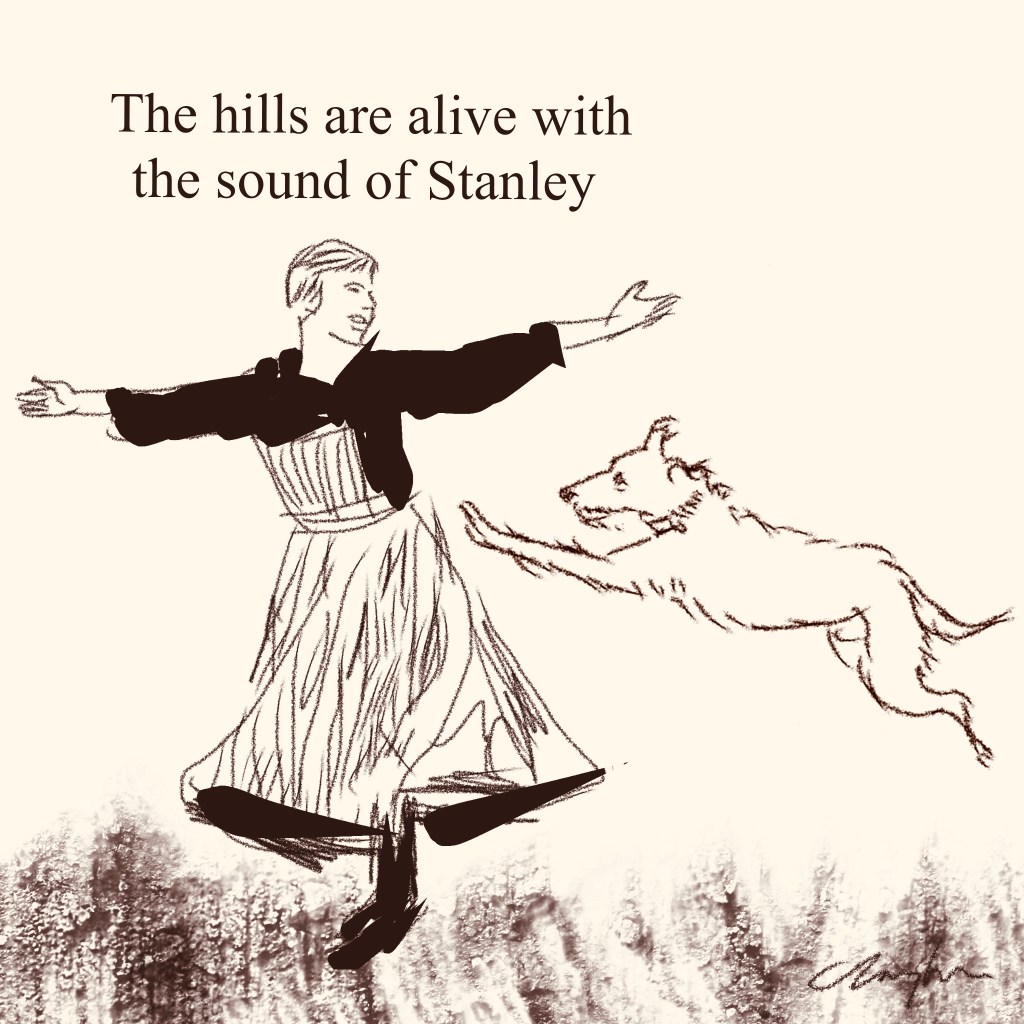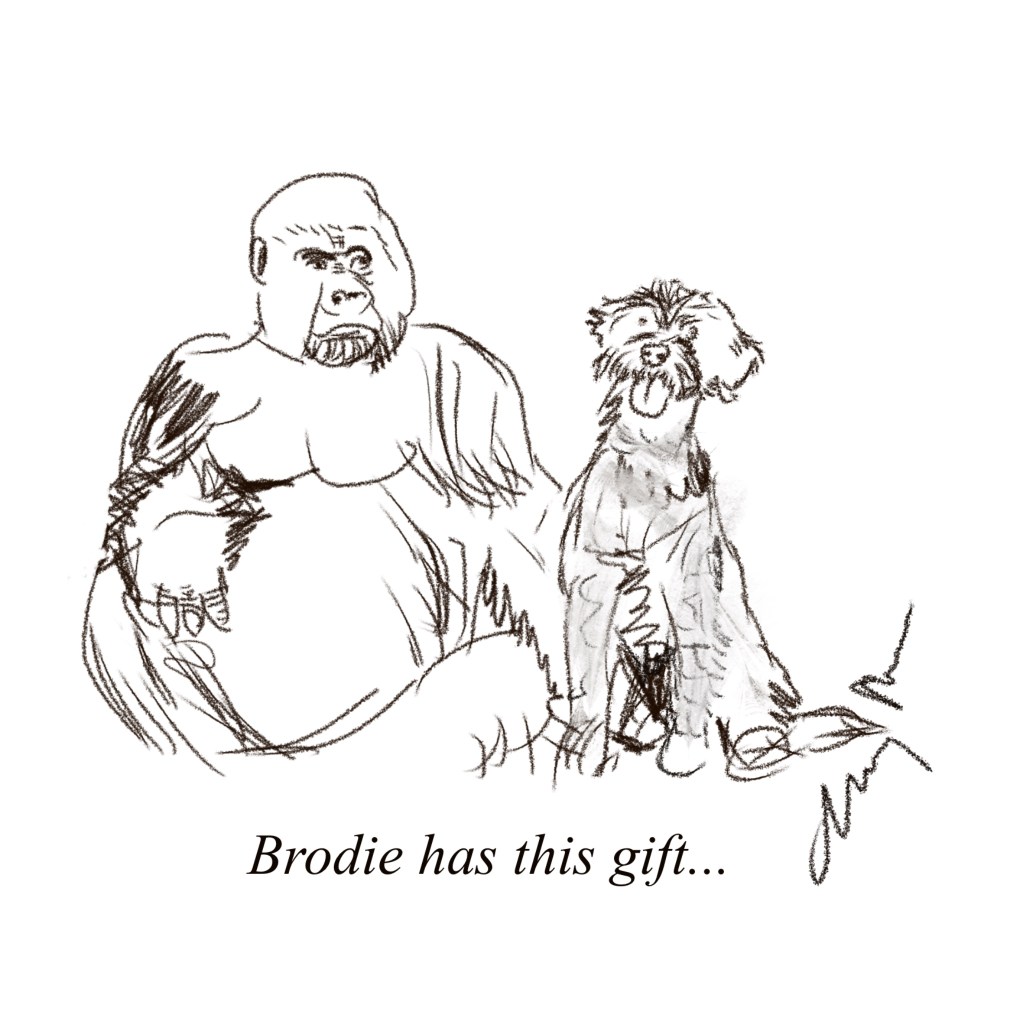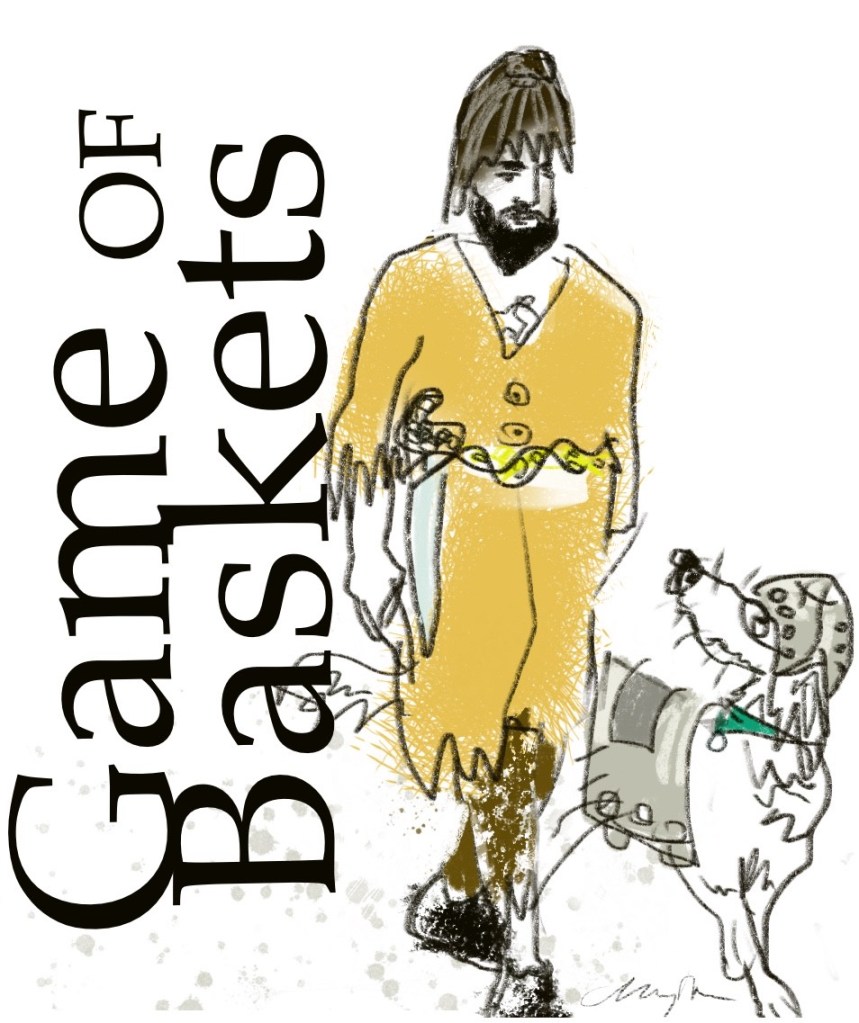foggy day in london town (except we don’t actually live there) – the Gas Man Cometh – the benefits of robodogs – a rowdy chihuahua – Stanley’s superpower – roles he might audition for – Gas Man doubles as Vet – text – Stanley of the West End – Gnasher breaks the spell
I’ll never understand Stanley.
Sometimes he barks, sometimes he doesn’t.
Take today, for instance.
Today was a foggy, sleepy, nonsuch kind of day. The kind of day you think whoever’s responsible for days got bored halfway through and gave up. A day when the difference between doing something or not doing something seems no bigger than a shrug.
It had started busily enough. The Gas Man had already been round to fix the boiler. I’d taken Jess to the station. Driven to the supermarket for a top-up shop on the way back. And now I was ready to take Stanley out. Which makes him sound like something on a to-do list, which I suppose in a way he was. Normally he’d have been waging a full-on protest, marching round the house with placards, but today he simply made himself ready to go, in a suspiciously organised way, standing as passively to receive his harness as a robodog, the sort you see in YouTube clips, Boston Dynamics, demonstrating the latest incredible version, neatly trotting up and down inclines, leaping from crate to crate, all with just the faintest hiss of hydraulics. (Which is an attractive alternative, to be honest, especially when you think that when you have to pick-up, it’s only a couple of AA batteries.) So without any fuss or whining whatsoever we got ready for the walk, and the moment we were ready, we left. And that was it. And quite why it was as smooth as that, I hadn’t the faintest idea.
It felt great to be out. The air was thrillingly cold – that rolling, numbing fog that makes you feel like you’d been miniaturised and set to walk in a freezer. Climbing over ice cube trays, frigid mountains of petits pois.
We turned into the Alley – a pinch-point for conflict, as once you’ve committed to one end there’s nowhere to hide if another dog comes the other way. And bloody hell there was another dog – at least, I suspected there was. A young family was heading to their car, mum with a toddler in her arms, dad with a comedy stack of boxes, and what looked like a dog lead stretched out in front of him, although I couldn’t see for sure. I mean – if it was a dog lead, the dog was very small, as there was nothing else to show for it, lost behind the parked cars. When we got closer my suspicions were confirmed. A chihuahua, suddenly barking as loudly as it could (which wasn’t very loudly, to be fair), springing up and down on its spindly legs. Of course, all dogs are essentially wolves. So although this chihuahua must’ve known it was small and not capable of much, still it was quite ready to hurl itself at the other wolf, and let itself be eaten, so that it might stick out its legs on the way down and choke its enemy to death.
Normally, Stanley would’ve joined in by now. He doesn’t need another dog to bark; it’s enough that he suspects they’re GOING to bark, or had a dream about barking once, or thought – a long time ago – that it might be a fun and sociable thing to do. In fact, Stanley is so sensitive to barking, he’ll bark if sees someone reading a book that mentions a barking dog. And when he barks, he barks with absolute commitment, like he’s auditioning for the role of Crazy Barking Dog, or Possessed Dog, or Dog Who Is A General Pain. So normally he’d have been doing plenty of his own barking by now, and springing up and down, too. With some lunging thrown in for good measure. This time, though, he was completely indifferent. Not bothered. Positively cool about it. All he did was glance over at the chihuahua. Oh? Are you barking? Why – what on earth for, dear chap? Do calm down before you blow a proverbial. It’s simply TOO nice a day to get overwrought – doncha think?
I was so amazed I forgot to reward him with a tripe stick. Could this be the same Stanley?
I thought about the Gas Man again. He’d been particularly thorough and efficient, and Stanley had followed him around in a loving haze, ready to pass him his wrench when he needed it. So I don’t know. Maybe the Gas Man had fixed Stanley along with the boiler. Changed his gasket. Depressurised the system. No extra charge, he probably said as he loaded up the van, although if he did I missed it.
Further along through the estate, just at the path that leads through the allotments to the horse field, three women were standing chatting and each of the women had a small dog. No sooner had we come into view, all the dogs started jumping up and down and barking, exactly as the chihuahua had done. They were so agitated, it was like watching a handful of dried peas dropped on a drum, bouncing up and down all over the place. In fact, they were so exactly like the chihuahua, I was suspicious they hadn’t been to the same evening class. Taking lessons in Going Shit Crazy – Intermediate level. Then coordinated the whole thing on WhatsYapp. The women seemed used to it, though. They just laughed, struggling to untangle the maypole of the leads as the dogs ran in and out, incensed to see Stanley walking calmly over the other side of the road. I remembered to give him a bite of tripe stick this time, and he took it as delicately as a retired West End luvvie taking a cigarette. I say old bean – you wouldn’t happen to have a light, would you? Smiling indulgently through the clouds of smoke or fog, at the funny little dogs, then sauntering on, his top hat tipped forward over his ears at a rakish angle.
We walked together and everything was lovely. The sun started to break through. I started dreaming about teaching Stanley some tricks. I could totally see him dodging in and out of canes and running over see-saws, whilst I run alongside in a houndstooth jacket and sensible shoes. Or we could do Dog Dancing. I could see it as clearly as switching on the TV. We’re standing opposite each other under a glitter ball, me in a spangly bolero jacket, Stanley in a pencil skirt, or maybe the other way round, hands and paws in the approved position, chins up, ready to give them our paso doble.
Suddenly, bowling towards us over the horizon, as much like Gnasher from the Beano as it’s possible for any living animal to be – a collie dog, heading straight towards us.
‘Stanley…. Noooooo!’
Too late.
The Bark was Back.












